Ianadmin
PCMC Italia boosts capacity with new plant.
On October 12th, 2016, PCMC Italia S.p.A., part of the US multinational Barry-Wehmiller, inaugurated its new 14,000-m2 facilities in Fornaci di Barga.
Spurred by the corporate motto “People Care Moves our Company”, the inauguration ceremony was centred on the talents protagonists of PCMC’s development throughout the years. An event dedicated to the about 500 people working in the company and their families, customers, guests coming from the world over, with a special focus on the young generations part of the PCMC family.
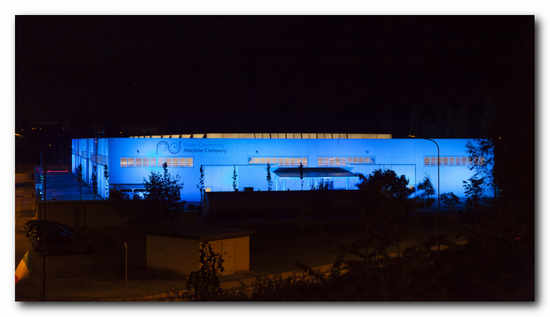
Sergio Casella, President of PCMC Italia, told TWM: "The grand opening of our new plant embodies also our corporate philosophy of measuring our success by the way we touch people’s lives. Our goal has been to create a working environment where our people can really feel at home. They have been involved in many decisions on how to organise and set the new offices and production areas: those are now their buildings.” The premises will allow check-outs of 4 complete converting lines simultaneously, for a production capacity of 36 lines per year, together with a space for the administration, production and sales departments.
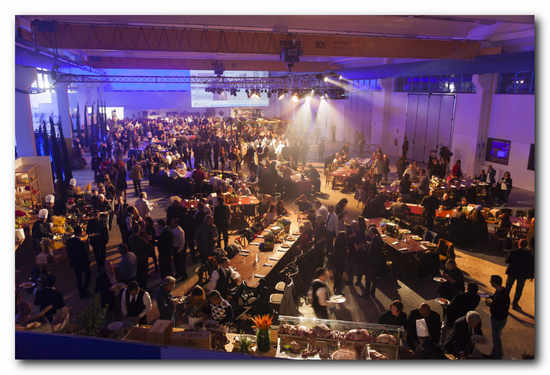
An event focused particularly on children: “Children are the future. During our inauguration, they cut the blue ribbon at the beginning of the event, sending the message that PCMC and its customers are working together to guarantee a better future for them”, added Casella.
The launch of the new plant is also an important step for the region itself: “PCMC is bringing life and hope again in an area where, due to the recent economic crisis, many companies have suffered and have been forced to move or close down,” Casella said. “Our plant opening underscores the policy of the Barry-Wehmiller group to continue to invest in the territories where PCMC is located.”
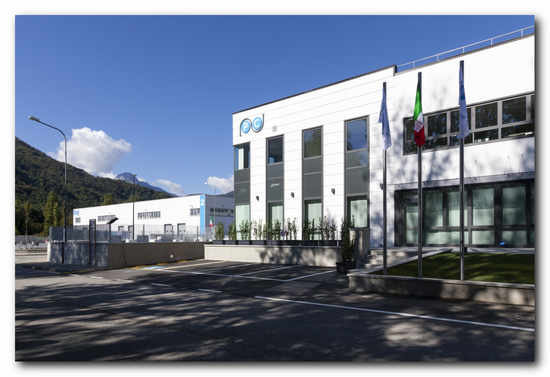
Together with the ribbon cutting ceremony, another inauguration took place: the street dedicated to William Austin Chapman, founder of Barry-Wehmiller, which will bear his name.
PCMC Italy is growing: strong of a turnover that exceeds 50 million euro and an expected 60-million euro for 2017, this year 20 complete converting lines were shipped around the world and more than 22 complete converting lines will be shipped in 2017.
About PCMC Paper Converting Machine Company (PCMC) has been specializing for over 90 years in the design and manufacture of converting machinery for the tissue, nonwovens and flexographic printing industries. Its tissue converting product line includes laminating, printing, embossing, perforating and packaging equipment to produce multi-ply bathroom tissue and household towels, table napkins, and away-from-home rolled products. The nonwovens converting line produces a variety of consumer products, including wet wipe disposable cloths. In addition, the company is a major manufacturer of multi-substrate flexographic presses, providing numerous printing options for the flexible packaging industry. The offer includes also machine rebuild and upgrade packages to improve the performance of existing equipment. PCMC is headquartered in Green Bay, Wi (USA), while its operations for Europe, Asia and Latin America are coordinated by PCMC Italia Spa, which is headquartered in Lucca, Tuscany - the veritable heart of the global Tissue business. PCMC is part of Barry-Wehmiller Companies, Inc., based in St. Louis (Missouri), a world-leading supplier of packaging, corrugating, and paper converting technology, as well as engineering consulting services across a broad spectrum of industries, employing more than five thousand associates around the globe. http://www.pcmc.com/
Paper Converting Machine Company (PCMC) has been specializing for over 90 years in the design and manufacture of converting machinery for the tissue, nonwovens and flexographic printing industries. Its tissue converting product line includes laminating, printing, embossing, perforating and packaging equipment to produce multi-ply bathroom tissue and household towels, table napkins, and away-from-home rolled products. The nonwovens converting line produces a variety of consumer products, including wet wipe disposable cloths. In addition, the company is a major manufacturer of multi-substrate flexographic presses, providing numerous printing options for the flexible packaging industry. The offer includes also machine rebuild and upgrade packages to improve the performance of existing equipment. PCMC is headquartered in Green Bay, Wi (USA), while its operations for Europe, Asia and Latin America are coordinated by PCMC Italia Spa, which is headquartered in Lucca, Tuscany - the veritable heart of the global Tissue business. PCMC is part of Barry-Wehmiller Companies, Inc., based in St. Louis (Missouri), a world-leading supplier of packaging, corrugating, and paper converting technology, as well as engineering consulting services across a broad spectrum of industries, employing more than five thousand associates around the globe. http://www.pcmc.com/
SCA and the UN Foundation Convene Fourth Annual Dialogue on the United Nation’s Global Agenda
- SCA President and CEO Magnus Groth to address the power of public-private partnerships in achieving the Global Agenda and advancing hygiene awareness and standards globally
As part of its ongoing support of the United Nations Sustainable Development Goals, leading global hygiene company SCA, in partnership with the United Nations Foundation, today convenes the fourth annual Global Dialogue. The United Nations Foundation launched the Dialogue on the Global Agenda in 2012, bringing together business, government and NGO leaders to collaborate and work together to advance the UN Sustainable Development Goals.
“On behalf of SCA, I am excited to participate in a conversation that aims to inspire new ideas and spark a global dialogue around all the 17 goals where hygiene, health and well-being play an important role,” said Magnus Groth. “Many of the United Nations Sustainable Development Goals are closely linked with so much of our business. By working together in public private partnerships, we can create a more sustainable world and improved hygiene, health and well-being for people around the world.”
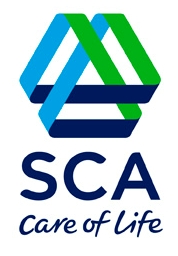 The United Nations Sustainable Development Goals were outlined and adopted in 2015 and SCA has remained committed to its role in driving progress around the Global Agenda. Last month, SCA announced the launch of its 2016-17 Hygiene Matters Report in partnership with The Water Supply and Sanitation Collaborative Council (WSSCC), a United Nations body devoted to the sanitation and hygiene needs of the most vulnerable people around the world. The Report looks at the economic and societal impact of hygiene and includes findings from a new global study to help raise awareness and encourage dialogue about the connection between hygiene, health and well-being.
The United Nations Sustainable Development Goals were outlined and adopted in 2015 and SCA has remained committed to its role in driving progress around the Global Agenda. Last month, SCA announced the launch of its 2016-17 Hygiene Matters Report in partnership with The Water Supply and Sanitation Collaborative Council (WSSCC), a United Nations body devoted to the sanitation and hygiene needs of the most vulnerable people around the world. The Report looks at the economic and societal impact of hygiene and includes findings from a new global study to help raise awareness and encourage dialogue about the connection between hygiene, health and well-being.
The United Nations Foundation Dialogue on the Global Agenda signifies the next step in SCA’s dedication to improve well-being through leading hygiene and health solutions, and serves as an example of how public-private partnerships can facilitate meaningful change in communities around the world.
Groth will open the Global Dialogue by sharing insights around SCA’s commitment to hygiene and how economic, environmental and social performance must become the standard for all corporate behavior throughout the private sector. Global Dialogue participants will then engage in discussions on ways the public and private sectors can inspire decision-makers and thought leaders to advocate for the Sustainable Development Goals in business, policy and society.
SCA is a leading global hygiene and forest products company. The Group develops and produces sustainable personal care, tissue and forest products. Sales are conducted in about 100 countries under many strong brands, including the leading global brands TENA and Tork, and regional brands, such as Libero, Libresse, Lotus, Nosotras, Saba, Tempo, Vinda and Zewa. As Europe’s largest private forest owner, SCA places considerable emphasis on sustainable forest management. The Group has about 44,000 employees. Sales in 2015 amounted to approximately SEK 115bn (EUR 12.3bn). SCA was founded in 1929, has its headquarters in Stockholm, Sweden, and is listed on NASDAQ OMX Stockholm. For more information, visit www.sca.com.
Fortress Technology introduces a modular surface Metal Detector for Web Applications
Fortress Technology, a global leader in the manufacture of metal detector systems, is pleased to announce the world wide release of their new modular surface metal detector system. This revolutionary modular system has been designed with a quick connect function, using a unique rail system, which enables each module to be independently placed, repositioned, removed and replaced, even while a web is present. Detector modules, along with the rail mount system are custom built to suit application, and therefore the overall width of system is unrestricted.
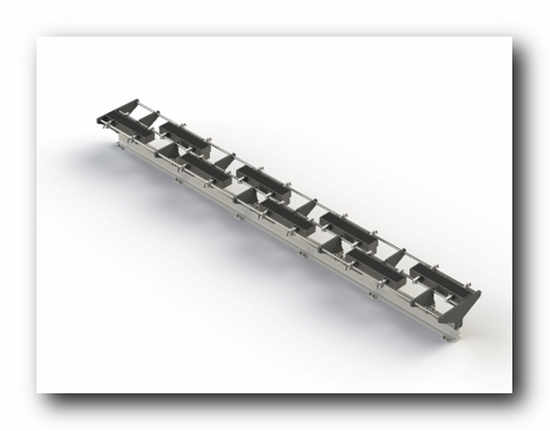
Full image of Modular Surface System on Rail Mounted Frame
“This system was designed to solve challenges our customer encountered with their production line”, says Steve Gidman, president of Fortress Technology. “We created a durable rail mount system, that withstands a harsh environment, including vibration, to enable our customer to achieve the best sensitivity in challenging environment.” After this successful installation, the modular systems design was refined to suit a wider range of products and processes.
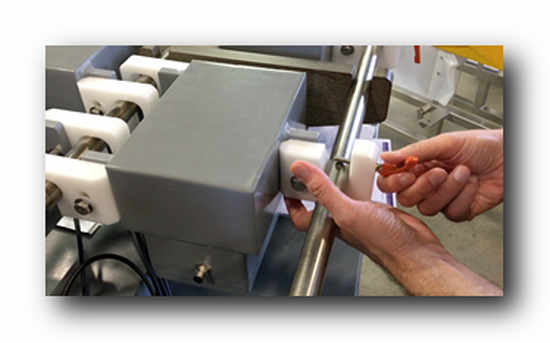
Quick Release Mechanism for moving or removing detector module
Manufactured to suit high temperature, high humidity environments, and high speed processes makes this very versatile and durable system an ideal solution for paper and textile manufacturers.
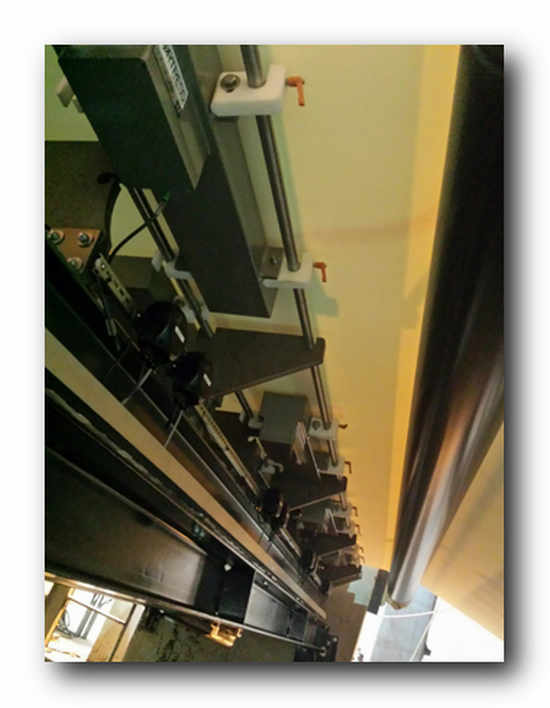
Installed system with sheet running over top of detector modules.
This revolutionary system will be making its debut at PACK EXPO in booth #S-1647 this year. As with all Fortress metal detectors, this system is Never Obsolete; parts and service are available for the lifetime of the detector.
Fortress Technology is the only North American Metal Detection Manufacturer that, since its inception in 1996, custom manufactures their equipment to suit their customers’ needs, application and specifications to ensure optimal metal detection. Fortress is a global enterprise with manufacturing offices in Canada, the UK, and Brazil. For more info - http://www.fortresstechnology.com/en-uk/
Rottneros appoints Monica Pasanen as new CFO
Rottneros has appointed Monica Pasanen as new CFO of the Group. She succeeds Krister Lindgren, who has been interim CFO since 2013.
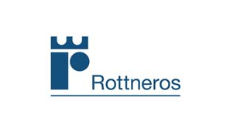 Monica Pasanen most recently comes from Stora Enso, where she is responsible for Supply Chain within the business unit Consumer Board. She has more than 20 years of experience in various management positions in both the financial and the sales & marketing area of Stora Enso and Bulleh Shah Packaging (Pvt) Ltd Pakistan. She will take office no later than 1 February 2017. Krister Lindgren will continue as CFO until then.
Monica Pasanen most recently comes from Stora Enso, where she is responsible for Supply Chain within the business unit Consumer Board. She has more than 20 years of experience in various management positions in both the financial and the sales & marketing area of Stora Enso and Bulleh Shah Packaging (Pvt) Ltd Pakistan. She will take office no later than 1 February 2017. Krister Lindgren will continue as CFO until then.
It is very gratifying that Monica Pasanen has accepted the post as CFO of Rottneros. She is a strong leader with an extensive experience in international forestry products. With her background in both finance and sales & marketing Monica will become a key figure in developing Rottneros within the framework of our growth strategy. Simultaneously, I would like to thank Krister Lindgren for the important work he has done for Rottneros since he took office in 2013, says Lennart Eberleh president and CEO of Rottneros.
Rottneros is an independent producer of market pulp. The Group comprises the parent company Rottneros AB, listed on NASDAQ Stockholm, and its subsidiaries Rottneros Bruk AB and Vallviks Bruk AB with operations involving the production and sale of market pulp. The Group also includes the wood procurement company Rottneros Baltic SIA in Latvia. The Group has just over 260 employees and had a turnover of approximately SEK 1.8 billion in the 2015 financial year.
For further information, please contact:
Lennart Eberleh, President and CEO Rottneros AB (publ), +46 270-622 65
Endress+Hauser Introduces Cerabar PMP Pressure Transducers
Cerabar PMP pressure transducers measure absolute or gauge pressure in gases, vapors, liquids and dust.
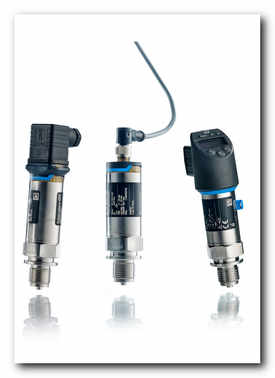 Endress+Hauser introduces Cerabar PMP11, 21 and 23 pressure transducers that measure up to 6,000 psi and are factory spanable to specific application requirements. The transducers are available with threaded or welded hygienic process connections, meet a variety of industry standards including FDA, FM, IEC and Ex, and provide 4-20 mA or 0-10 Vdc output signals.
Endress+Hauser introduces Cerabar PMP11, 21 and 23 pressure transducers that measure up to 6,000 psi and are factory spanable to specific application requirements. The transducers are available with threaded or welded hygienic process connections, meet a variety of industry standards including FDA, FM, IEC and Ex, and provide 4-20 mA or 0-10 Vdc output signals.
These durable and reliable transducers provide excellent performance. The Cerabar PMP11 and PMP21 pressure transducers measure pressures from -15 to 6,000 psi at temperatures from -40 to 212 °F with accuracy of 0.5% and 0.3%, respectively.
The Cerabar PMP23 pressure transducers measure pressures from -15 to 600 psi at temperatures from 14 to 212 °F with accuracy of 0.3%. The IP69 housing and process isolating diaphragm are 316L stainless steel. Fully welded hygienic process connections without additional adapters or O-rings are available for washdown applications. The PMP23 can be used in CIP and SIP applications at temperatures up to 275 °F for a maximum of one hour.
Transducer models with a valve plug can be fitted with the PHX20 local display. The one-line LCD shows measured values, fault messages and information messages. The device display can be turned in 90° steps, making it easy to reorient as required for improved readability.
Approvals include CE, ATEX, FM, FDA, CSA, GOST, IEC Ex, NEPSI Ex, TIIS, RCM-Tick Marking (Australia) and others. The transducers correspond to Article 3 (3) of the EC directive 97/23/EC (Pressure Equipment Directive), and have been designed and manufactured in accordance with Category I or II, SEP.
For more detailed information on the Cerabar PMP pressure transducers, please visit www.us.endress.com/cerabar-pressure-transducers
About Endress+Hauser
Endress+Hauser is one of the largest instrument manufacturers in the United States’ industrial automation industry – specializing in automation solutions for the Chemical, Food & Beverage, Oil & Gas, Water and Wastewater, Life Sciences, Power and Energy, Primaries, and Pulp and Paper Industries. Endress+Hauser, a Switzerland based company, first began operations in the U.S. in 1970. Since that time, Endress+Hauser has continued to invest in its U.S. operations - investing an average of 10% of its annual revenue into its infrastructure.
For more information, please visit www.us.endress.com
Valmet launches new quality management solutions for corrugators at SuperCorrExpo 2016
Valmet has developed a totally new concept for quality oriented process control of corrugating machines. This includes cost- and space-efficient Valmet IQ Multipoint Moisture Measurement system and a new camera based Valmet IQ Warp Measurement for the combined board flatness control.
Previously, corrugating machine process control has been based on sheet temperatures due to a lack of suitable moisture sensors built for the tight confines of corrugating machines. Valmet's experience from paper machine processes has shown that temperature measurements alone are not sufficient when controlling fiber based web processes and moisture measurements are needed to maximize productivity and decrease quality defects.
"We are now challenging the methods of traditional corrugator control with new technology, methods and concepts in an area that has previously been somewhat ignored by higher level automation. We have found out that efficient moisture control in addition to temperature control improves gluing, reduces fluting defects or washboard and eliminates warp in the final product. Our approach, which emphasizes the cost effectiveness of solutions, is being met with enthusiasm across the industry," says Mikko Talonen, Business Manager, Automation, Valmet.
Combining new innovation with experience from other processes
The Valmet IQ Multipoint Moisture Measurement sensor, a key component in the new system, has been developed to meet the need for a simple, small and cost effective moisture measurement in the tight confines of the corrugating machine. The corrugating process features up to ten drying and re-wetting cycles which, in addition to disturbances such a speed changes and raw material changes, increase variability and suboptimal process situations.
The Valmet IQ corrugator control system can utilize steam and moisture profilers and scanning sensors developed for, and utilized over many years in the paper and board industry. As well as the IQ Multipoint Moisture a new camera based warp measurement has been developed to meet user needs. Valmet's continuous development efforts, now extended to corrugating operations, promise to provide more innovation for future process and quality improvements.
Valmet IQ is quality management solution designed and built with the experience of thousands of system deliveries by Valmet over more than half a century. Designed for pulp, paper, board and tissue production, it is a customizable quality control, information and management solution that has been further developed to meet the needs of converting operations such as corrugated board and self-adhesive laminate production.
The application and its use is demonstrated at the SuperCorrExpo, the largest corrugated industry trade show in the Western hemisphere. The 4 day event is held from October 17 to October 20, 2016 at the Orange County Convention Center (OCCC) in Orlando, USA.
Valmet is the leading global developer and supplier of process technologies, automation and services for the pulp, paper and energy industries. We aim to become the global champion in serving our customers.
Valmet's strong technology offering includes pulp mills, tissue, board and paper production lines, as well as power plants for bioenergy production. Our advanced services and automation solutions improve the reliability and performance of our customers' processes and enhance the effective utilization of raw materials and energy.
Valmet's net sales in 2015 were approximately EUR 2.9 billion. Our 12,000 professionals around the world work close to our customers and are committed to moving our customers' performance forward - every day. Valmet's head office is in Espoo, Finland and its shares are listed on the Nasdaq Helsinki.
Online strength prediction shows promise
Models verified for OCC-furnish containerboard and TMP-based publication papers. Prediction and control of BCTMP properties has been implemented; kraft pulp models are coming.
By Mark Williamson, Journalist Engineer
Online measurements by Valmet’s Pulp Analyzer (Valmet MAP) are the foundation for paper strength prediction
 Valmet’s announcement that it had developed the capability to predict end-use paper strength properties signaled a major change in how paper quality can be controlled effectively and conclusively from an upstream location. For the first time, operators can see online how fibers are developed in the refiners and the impact of refining changes on paper sheet qualities, rather than waiting for top-of-reel physical tests. This paradigm shift is made possible by a new high definition image analysis of fiber properties added to the Valmet MAP. With this high resolution, the fine detail of fiber fibrillation created by the refiners can be seen, in addition to fiber length fractions, shives, fines, other fiber morphology measurements and freeness measurement from several sampling locations. Seeing is believing. These measurements and papermachine operating conditions are now used in a multi-variable soft sensor model which predicts final sheet properties. These predictions correlate to traditional lab tests.
Valmet’s announcement that it had developed the capability to predict end-use paper strength properties signaled a major change in how paper quality can be controlled effectively and conclusively from an upstream location. For the first time, operators can see online how fibers are developed in the refiners and the impact of refining changes on paper sheet qualities, rather than waiting for top-of-reel physical tests. This paradigm shift is made possible by a new high definition image analysis of fiber properties added to the Valmet MAP. With this high resolution, the fine detail of fiber fibrillation created by the refiners can be seen, in addition to fiber length fractions, shives, fines, other fiber morphology measurements and freeness measurement from several sampling locations. Seeing is believing. These measurements and papermachine operating conditions are now used in a multi-variable soft sensor model which predicts final sheet properties. These predictions correlate to traditional lab tests.
Of course, the same measurements can be made with offline lab instruments, and that is valuable for grade development, recipe management and incoming fiber property checking. However, for real-time process control, the immediacy of measurements from the online analyzer confirms the control moves are correct and tests are not being sacrificed.
Models confirmed
Now, the results are coming to light as customers are learning more about stock prep processes. One of the first was at a newsprint and publication paper mill using TMP as the furnish. Product Manager Ismo Joensuu reports; “The tensile strength model based on the analyzer data in their TMP has been stable and accurate over the years. Actually, we have not made any updates to the model since installation.” This is a positive confirmation that the model is repeatable and robust, which is essential for any online measurement. After using the measurement for operator adjustments, the customer plans to implement refining controls in the autumn of 2016, according to Joensuu.
More recently, the analyzer has been used to measure OCC furnish fiber properties and freeness before a containerboard machine. Papermakers have to carefully manage the refining operation since they have to deal with a fiber source which is less desirable and less predictable than virgin kraft fibers. Figure 1 shows the correlation of the soft sensor prediction of STFI compression to laboratory tests over an eight-day period. Similar predictive models have been developed for Mullen and Concora tests.
Figure 1: Correlation of soft sensor prediction of STFI compression to laboratory results over an eight-day period. Similar predictive models have been developed for Mullen and Concora tests.
The models are based on multiple fiber measurements, freeness and board machine operating conditions. The top ranked measurements include longer fiber fractions and conditioned weight. This is not surprising since long fibers make stronger board and higher conditioned weight adds strength - at a cost of course. Other important factors include fibrillation and papermachine operating conditions, like headbox temperature, rush/drag ratio, forming table vacuums and couch vacuum. The eventual objective is to manage refining so the fibers themselves contribute the most to strength. Then, conditioned weight can be lowered - or not run too high - while still meeting the tests. Startups, grade changes and break recovery periods can be shorter with less waste.
A new window
The installation of the OCC analyzer has opened up a new window that wasn’t there before. The fiber and freeness measurements have confirmed in real-time what papermakers have always known about refining, but there have been a few surprises. For instance, the degree of fiber cutting, fiber development and fines development in top and bottom ply refiners is now well defined but sometimes different than expected. In one case, a conventional operator control action was contradicted by the predictive measurements. After analyzing the data, the predictive action was proven true. “The fiber images don’t lie,” says Kevin VanPembrook, Product Manager. “Freeness still plays a significant role but fiber analysis and freeness together tell a more complete story,” he adds.
Fiber analysis can also be used to predict refiner plate life. As VanPembrook explains, there is a tendency to over-refine to achieve freeness targets as the plates wear, and that can result in fiber cutting and loss of strength.
Pulp mill modeling
The pulp analyzer and soft-sensor modeling is also implemented in pulp mills where important fiber properties are being predicted. In a BCTMP mill bulk and tensile strength are being predicted by soft sensor models which use freeness (CSF), shives and fines measurements from the pulp analyzer plus bleach plant pH, which an advanced process control (APC) regulates to keep bulk and tensile within range. Bulk measurements from the lab and tensile tests from Valmet’s Pulp Expert automated testing lab are used to fine tune the predictive model. The APC manipulates peroxide and caustic dosage to control medium consistency brightness, high consistency brightness, residual peroxide, pH , and final pulp bulk and tensile strength.
Figure 2: Predicted bulk of different BCTMP grades (blue) compared to lab tests (brown).
Furthermore, a bleached kraft pulp mill is currently commissioning an analyzer to measure fiber properties in the machine chest of a pulp dryer. Data are being collected now to construct models of pulp strength and bulk which could be related to upstream pulping and bleaching conditions. This is something to look out for in the future, as many commodity pulp mills want to fine tune quality to customer specs.
Linking pulp to paper quality
Successful model-based controls which optimize final paper quality by managing stock prep systems are based on earlier versions of the pulp analyzer, not including the most recent high definition image analysis. These so-called pulp to paper optimization controls use inputs of automated testing labs as well as manual tests to update the models. Figure 3 shows how refining and stock blending control work with multiple inputs from the pulp analyzer. Further reports on the implementation of controls will be interesting to follow.
Note: A more thorough explanation of Valmet’s approach to strength prediction and control was presented at the Japan Tappi conference in October, 2016.
Figure 3: Model predictive control of refining and stock blending with multiple inputs from an online pulp analyzer. ANDRITZ to supply tissue machine with the world’s largest steel Yankee to Brazil
International technology Group ANDRITZ has received an order from Carta Fabril to supply a PrimeLineST W22 tissue machine with steel Yankee and steam-heated hood for its mill in Anápolis, Brazil. Start-up is scheduled for January 2019.
The PrimeDry Steel Yankee delivered by ANDRITZ has a diameter of 22 ft. and thus is the largest for tissue worldwide. The combination with the steam-heated hood enables efficient drying with substantial energy savings and safe operation. The steam-heated hood is equipped with an innovative automatic cleaning system and a dust removal system. The order also includes the complete stock preparation plant, which processes 100% short fiber (Eucalyptus).
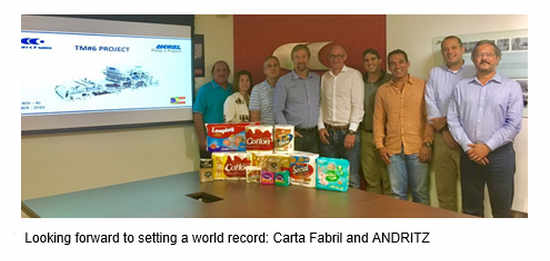
“Photo: ANDRITZ”
The ANDRITZ tissue machine has a design speed of 2,100 m/min and a width of 5.55 m. It will use 100% renewable energy generated from biomass and converted into steam.
The order for the world’s first tissue machine with a 22 ft. steel Yankee confirms ANDRITZ PULP & PAPER’s strong position as one of the global market leaders for supply of complete tissue production lines, key components, and services, and as the right partner for innovative solutions and unique records.
Carta Fabril ranks among the key players in the Brazilian tissue business, covering the complete product range of tissue papers. The company targets “green production” by minimizing liquid and solid waste, effluents, and CO2 emissions.
The ANDRITZ GROUP
ANDRITZ is a globally leading supplier of plants, equipment, and services for hydropower stations, the pulp and paper industry, the metalworking and steel industries, and for solid/liquid separation in the municipal and industrial sectors. The publicly listed technology Group is headquartered in Graz, Austria, and has a staff of approximately 25,700 employees. ANDRITZ operates over 250 sites worldwide.
ANDRITZ PULP & PAPER
ANDRITZ PULP & PAPER is a leading global supplier of equipment, systems, and services for the production and processing of all types of pulp, paper, tissue, and cardboard. The technologies cover the processing of logs, annual fibers, and waste paper; the production of chemical pulp, mechanical pulp, and recycled fibers; the recovery and reuse of chemicals; the preparation of paper machine furnish; the production of paper, tissue, and cardboard; the calendering and coating of paper; as well as treatment of reject materials and sludge. The service range includes modernization, rebuilds, spare and wear parts, service and maintenance, as well as machine transfer and second-hand equipment. Biomass, steam, and recovery boilers, as well as gasification plants for power generation, flue gas cleaning plants, plants for the production of nonwovens, dissolving pulp, and panelboards (MDF), as well as recycling plants are also allocated to the business area.
Accraply introduces compact and affordable Stanford 438 slitter rewinder
Accraply, a leading manufacturer of automated labelling and converting systems, recently introduced the versatile and efficient Stanford 438 slitter rewinder. With ultrasonic unwind measurement, adaptive tension control, single or dual shaft winding, an onboard drive processor and an intuitive 12-inch touchscreen, the 438 is the most technologically advanced slitter in its class.
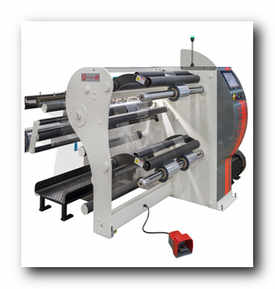 A cantilevered duplex differential slitter rewinder, the 438 offers converters an affordable, easy-to-operate, compact solution for their slitting needs. This machine is well suited for a wide range of products, including shrink sleeve, film, film laminates, self-adhesive label stock, paper and other flexible materials.
A cantilevered duplex differential slitter rewinder, the 438 offers converters an affordable, easy-to-operate, compact solution for their slitting needs. This machine is well suited for a wide range of products, including shrink sleeve, film, film laminates, self-adhesive label stock, paper and other flexible materials.
“We are very happy with the level of interest in Stanford’s technology,” noted Allison Fox, Converting Product Line Manager for Accraply. “The first 438 was sold during development, and it had a strong debut at the LabelExpo Americas event in September of 2016.”
Currently in its 74th year serving the converting industry, Accraply manufactures a selection of Stanford Doctor Machines®, duplex differential slitter rewinders, shrink sleeve finishing equipment and custom converting machinery. Accraply is one of a number of Barry-Wehmiller companies represented in BW Packaging Solutions. Through their diverse capabilities, these companies can provide a single piece of equipment to fully integrated, tailor-made packaging line solutions for a wide range of industries, including: food and beverage, personal care, container manufacturing, pharmaceutical and medical devices, household products, paper products and textiles, industrial and automotive, and converting, printing and publishing.
Accraply, as well as the rest of the BW Packaging Solutions companies, will showcase its technology at PACK EXPO International, Nov. 6-9, 2016, at McCormick Place in Chicago.
| ABOUT ACCRAPLY, INC. |
| Comprised of the Accraply, Graham | Sleevit, Harland, Stanford and Trine brands, Accraply unites some of the most trusted names in product decoration and material converting. Known for our cutting-edge technology and innovative custom-engineered designs, Accraply has been credited with many industry firsts and advances in application and converting technologies. Accraply, part of Barry-Wehmiller, is a worldwide leader in the design, manufacture and support of pressure-sensitive, roll-fed and shrink sleeve label application systems, as well as converting and finishing equipment, for the shrink sleeve and flexible-packaging markets. For more, go to www.accraply.com. |
| ABOUT BARRY-WEHMILLER |
| Barry-Wehmiller is a diversified global supplier of engineering consulting and manufacturing technology for the packaging, corrugating, sheeting and paper converting industries. By blending people-centric leadership with disciplined operational strategies and purpose-driven growth, Barry-Wehmiller has become a $2+ billion organization with 11,000-plus team members united by a common belief: to use the power of business to build a better world. CEO Bob Chapman shares the story of the company’s transformation in his new book, Everybody Matters: The Extraordinary Power of Caring for Your People Like Family. To learn more, go to barrywehmiller.com. |
Delegation from South East Asia visiting Sweden
At the beginning of October 2016 a delegation from the pulp & paper industry in Thailand, Malaysia and Indonesia visited Sweden, invited by Swedish Pulp & Paper Technology Group, PPT. The purpose of the visit was to present Swedish technology for important decision makers and to give an opportunity for the Swedish suppliers of technology to develop their business in South East Asia.
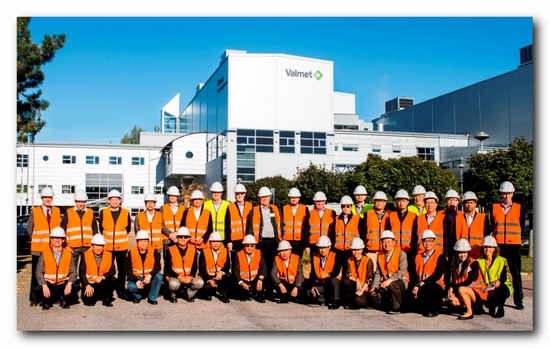
”The members of Swedish Pulp & Paper Technology Group, PPT, supplying technology to the forest industry all around the world, have regular meetings with representatives from the forest-based industry in South East Asia. These meetings are important for developing a competitive and environmentally sound forest industry in the region at the same time as they bring business opportunities for Swedish suppliers of technology”, says Ulf Frölander, chairman of PPT.
The Delegation included 20 mill and production managers from the most important producers in the region. Business Sweden´s office in Kuala Lumpur, Malaysia, invited and gathered the delegation. The program in Sweden, carried out in and around Karlstad, included technical presentations and individual business meetings between the visitors and member companies of PPT, as well as visits to Stora Enso Skoghall and to technology companies.
The industry in Thailand, Malaysia and Indonesia are searching technical solutions for increased productivity as they aim at expanding pulp production based on planted fast-growing forests, as well as focusing on increased production of different paper grades. The world is aware that significant technological advancements are developed in Sweden and international producers attentively watch our new techniques for pulp and paper production.
PPT, Swedish Pulp & Paper Technology Group, is an economic association, formed in 1989 by the Swedish Trade Council (now Business Sweden) along with member companies. Emphasising environmental concerns, energy conservation, productivity increases and quality control, they are all dedicated to promoting Swedish pulp and paper technology around the world, www.pptgroup.se




